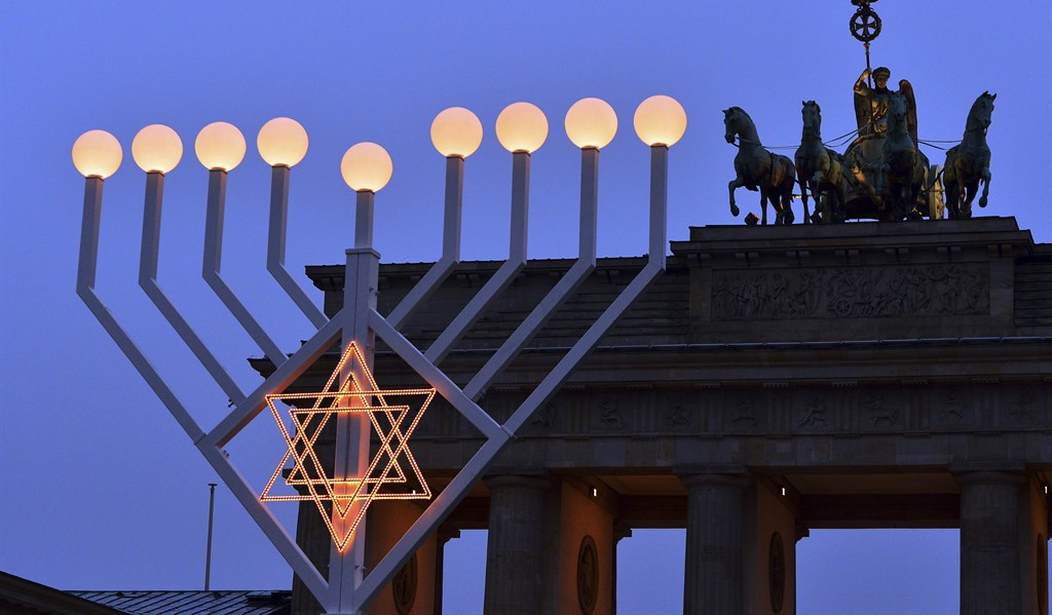Jews around the world will light the first candle to begin celebrating Hanukkah Sunday at sunset. But the Hanukkah story most people of all religions know is either half the tale or contains some incorrect information.
After all the pandemic-related darkness and gloom we could all do with a little light in our lives. Which makes the advent of Hanukkah, this year, all the more joyful and welcome.#Hanukkah | #Israel | #Winter https://t.co/frxml9YYxw
— The Jerusalem Post (@Jerusalem_Post) November 27, 2021
Hanukkah celebrates the result of a Jewish civil war and the victory of Jews who maintained their faith over assimilated Jews. It was, of course, not created as a holiday around Christmas so that Jewish kids can also get presents at the end of the secular year.
Since Hanukkah appropriately starts at the conclusion of Thanksgiving weekend in 2021, some may wonder why it’s so early this time. In reality, Hanukkah is the same day every year, the 25th of the Jewish month of Kislev. Because the Jewish calendar is lunar-based, the solar calendar day changes each year.
As far as Jewish holidays go, Hanukkah is not that important. Like Purim, rabbis created it. The command to observe holidays like Passover, Sukkot, or Shavuot comes from God via the Torah. Since God “outranks” rabbis, the Torah-based holidays are more important.
The most common view of Hanukkah involves the miracle of one day’s worth of oil lighting the menorah in the Holy Temple for eight days, the Maccabees’ defeat of King Antiochus IV’s forces, and the re-dedication of the Temple in Jerusalem.
There is no mention of Hanukkah in the Book of Maccabees or other Jewish historical sources from the time. The reason for the candles is to celebrate that the Maccabee fighters brought the light of God and the observance of the Torah back into the Holy Land.
The war Mattathias ben Johanan and his sons led was really an internecine battle against Jews who turned away from their faith.
As Rabbi Jeremy Rosen wrote Friday, “Hanukkah is the story of religious conviction and resistance, even if unfashionable.”
The civil war began in Modi’in, when a government representative of Emperor Antiochus IV demanded that ben Johanan offer sacrifices to the Greek gods. He refused to do so and even killed the Jew who stepped forward to offer to the sacrifice and the official who made the demand. An order to arrest ben Johanan was made and he fled into the wilderness, where he was joined by his sons and others who heeded his call, “Let everyone who has a zeal for the Law and who stands by the covenant follow me!” There they began the civil war and procured the Maccabee moniker.
Hanukkah started out as a celebration of Sukkot, as when the Maccabees retook the Temple, they decided to celebrate Sukkot three months late since war had delayed them. The Maccabees rededicated the Temple and immediately set out to observe the festival.
That re-dedication celebration, now called Hanukkah, was initially named the Festival of Lights; it was effectively a re-dedication of Jews to the Torah and the light of God.
The primary miracle of Hanukkah was the victory of the Jews over superior forces because they received help from God. God performed similar miracles with Purim, the creation of Israel in 1948, and the Six-Day War two decades later.
Hanukkah’s candles are also a reminder that in Judaism, the light of God doesn’t come from one worldwide source. Each person and each family is essential since light from one family radiates from their home to communities across the country and throughout the whole world.









Join the conversation as a VIP Member